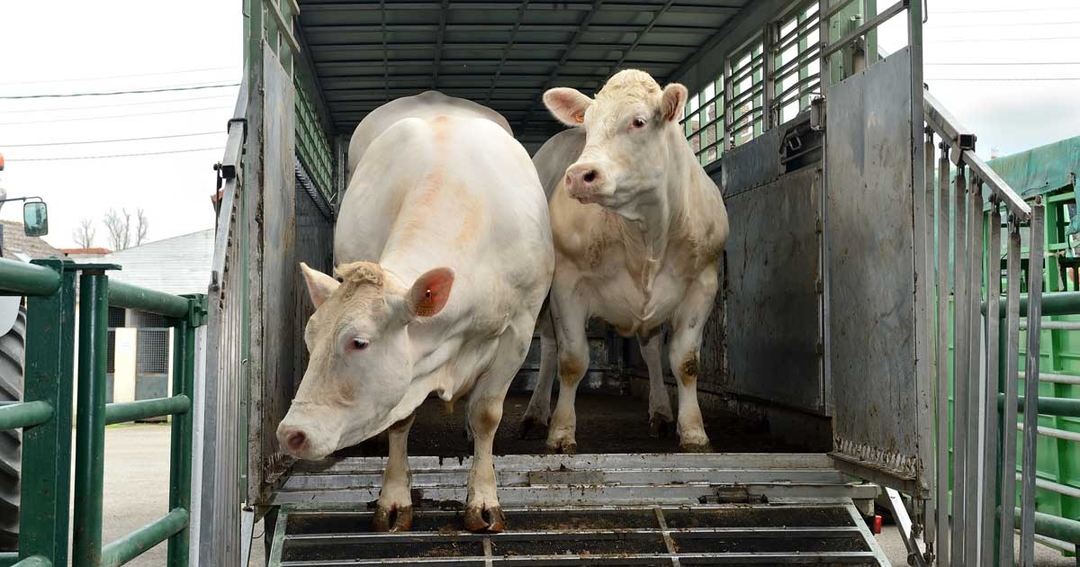2 Sept 2021
Shorter journey times, ban on live animal exports for slaughter and stricter rules on moving animals in extreme temperatures are all part of Government reforms.

A major overhaul of standards for transporting farm animals – including shorter journey times and a ban on live animal exports for slaughter – has been welcomed by the vet and farming sectors.
The reforms, also set to include provision for more headroom and stricter rules on being moved in extreme temperatures, are part of the Government’s Animal Welfare (Kept Animals) Bill currently going through Parliament.
The Government argues the rules – which also cover the transportation of horses, such as for sporting reasons – are being developed in conjunction with animal keepers, and will apply to England and Wales. The new rules would also include the introduction of a ban on live animal exports for slaughter and fattening.
A spokesman for Defra said: “The Government has listened to early feedback from industry, and will now work with the farming sector and welfare groups to develop these proposals, and prepare for the transition to the higher standards to build on the high-welfare outcomes already being delivered on farms across England and Wales.
“These new conditions would apply to all journeys over 65km. Independent evidence has shown that very long journeys can cause heat stress, dehydration and physical injuries in transported animals such as horses, pigs, sheep, poultry and cattle.
“Over a billion animals are farmed in the UK each year, many of which are transported within the country for slaughter, fattening and breeding.”
The announcement follows a 12-week consultation launched in December, which sought industry and public views on proposals to improve animal welfare in transport.
Environment secretary George Eustice said: “We are legislating to ban the export of live animals for slaughter and fattening, and are now developing other measures to improve the welfare of animals during transport.
“We have listened to the concerns raised relating to our proposed changes to transport regulations and have made changes to address these. We will continue to work with industry on the remaining details.”
The measures have been welcomed by veterinary bodies, with the BVA calling on Defra to take a holistic approach and keep farmers and vets in the loop.
BVA president James Russell said: “We’re pleased to see the Government standing by its pledge to improve conditions during transport for farm animals, as well as a commitment to work with industry to develop proposals further.
“It’s also positive that they have recognised the need to take a holistic approach. The consultation outcome commits to exploring and addressing other areas that can have a significant impact on welfare, such as time spent at markets, shows and collection centres; how best to enforce regulations; and the importance of regular and formal training for those involved in transporting live animals.
“It’s vital the Government engages meaningfully with the veterinary profession and industry colleagues as they develop these proposals, to ensure measures are evidence-based and workable, and deliver genuine and decisive welfare benefits for millions of farm animals.
“We look forward to working closely with our species divisions and Defra as the specifics take shape.”
The proposed changes, which also tighten welfare guidance for horses, have been welcomed by equine welfare advocates. Roly Owers, chief executive of World Horse Welfare, said: “These proposals mark a very significant and positive step toward improving the welfare of equines when being transported, and we look forward to working with Defra, the Welsh Government, and the equestrian sector to ensure these proposals both protect equines during what is often a stressful and exhausting experience, and are practical for horse owners and transporters to comply with.”
But he said work would be needed to tailor some standards to horses. He said: “Unlike other large animals, horses travel frequently and widely for many reasons such as breeding, leisure, racing and other sports.
“We are concerned that many of these proposals seem to have been driven by improving the welfare of animals travelling for fattening and to slaughter, which in many cases are not realistic, and could have serious implications for sport and the leisure sector without bringing any clear welfare benefits.
“We believe that there is a strong case to introduce a nine-hour rest period for equines following a 12-hour journey, other than those transported to slaughter, to allow them to continue their journey to their final destination or return from competition.”
Mr Owers added: “We are pleased that the consultation response commits to further discussion and recognises the need for a holistic approach to transport, ensuring the welfare of the horse is protected before, during and after transport.
“This aligns with the approach taken in the Scottish consultation, which was much wider in scope than the English and Welsh, and we hope that whatever regime comes in will be applied consistently across Great Britain. An integrated approach is vital for driving behaviour change and encouraging compliance, as we have seen time and time again that complex and differing legislation can be confusing and challenging to comply with.
“To make any of these proposals workable and enforceable we will again emphasise the fundamental need for a straightforward, reliable, and robust fully digital method of identification and traceability for all horses.”